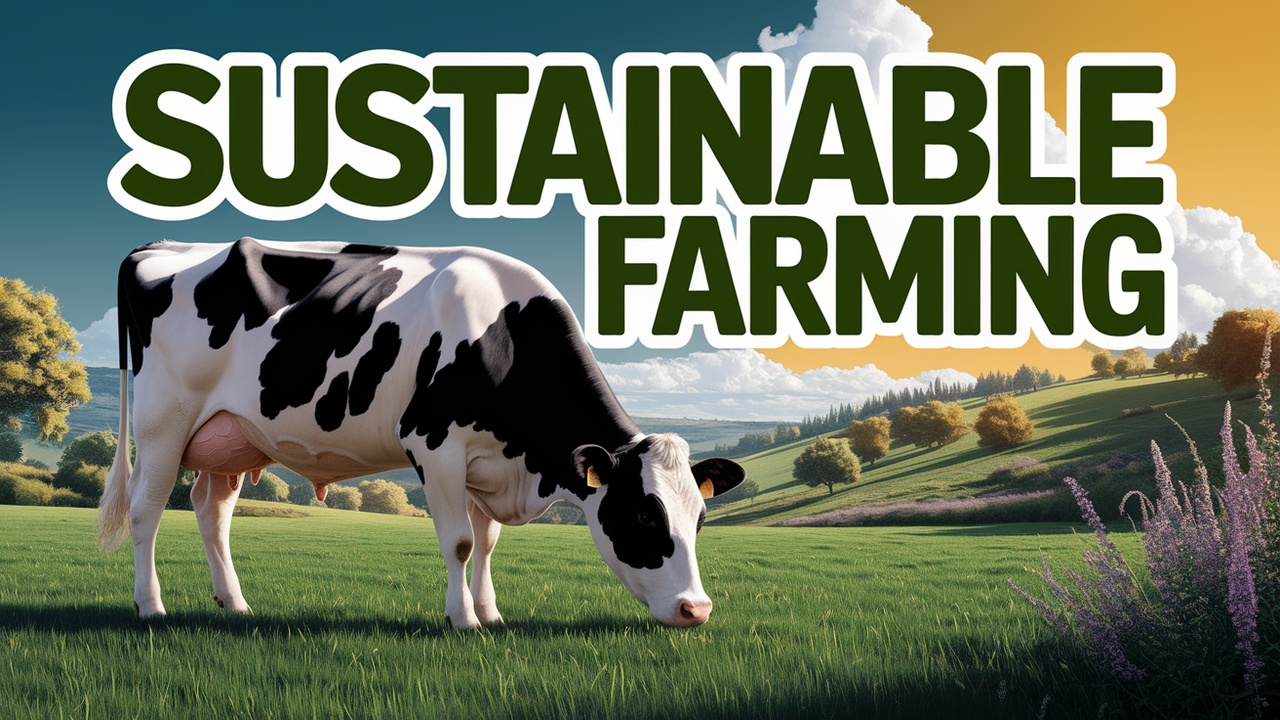
This course explores innovative and effective methods of animal farming that prioritize environmental health, animal welfare, and economic viability. Participants will learn sustainable practices that can be implemented in various farming systems to promote longevity and resilience in agricultural practices.
Course Levels
-
Level 1: Introduction to Sustainable Farming
This level introduces the fundamental concepts of sustainable farming and its importance in modern agriculture.
-
Level 2: Soil Health and Management
This level focuses on the critical role of soil health in sustainable animal farming and how to manage it effectively.
-
Level 3: Animal Husbandry Practices
This level delves into best practices for animal husbandry that align with sustainability goals.
-
Level 4: Sustainable Feed and Nutrition
Participants will explore sustainable feed options and nutrition management for various livestock.
-
Level 5: Waste Management and Recycling
This level covers waste management practices that reduce environmental impact and promote recycling in animal farming.
-
Level 6: Local and Global Regulations
Participants will learn about the regulatory frameworks governing sustainable animal farming practices at local and international levels.
-
Level 7: Community Engagement and Education
This level emphasizes the importance of community involvement and education in promoting sustainable practices.
-
Level 8: Innovations in Sustainable Animal Farming
This advanced level explores cutting-edge technologies and innovations that enhance sustainability in animal farming.
-
Level 9: Case Studies and Best Practices
Participants will analyze real-world case studies to understand successful sustainable animal farming practices.
-
Level 10: Creating a Sustainable Farming Plan
In the final level, participants will develop their own sustainable animal farming plan tailored to their specific context.
Course Topics
-
Certifications in Sustainable Farming
# Certifications in Sustainable Farming Sustainable farming practices are critical for ensuring environmental, economic, and social sustainability in agriculture. Certifications serve as a means to v...
-
Biogas Production from Waste
# Biogas Production from Waste Biogas production is a sustainable method of managing organic waste and generating renewable energy. In this section, we will explore the processes, benefits, and pract...
-
Engaging Youth in Sustainable Practices
# Engaging Youth in Sustainable Practices ## Introduction Engaging youth in sustainable practices is vital for fostering a new generation of environmentally conscious individuals who can contribute p...
-
Organic Fertilizers vs. Chemical Fertilizers
# Organic Fertilizers vs. Chemical Fertilizers In the realm of sustainable animal farming practices, understanding the differences between organic and chemical fertilizers is essential for maintainin...
-
Locally Sourced vs. Imported Feeds
# Locally Sourced vs. Imported Feeds In the realm of sustainable animal farming, the choice between locally sourced and imported feeds is critical. This decision impacts not only the health and produ...
-
Understanding Soil Composition and Health
# Understanding Soil Composition and Health Soil is the foundation of agriculture and plays a critical role in sustainable animal farming. Understanding soil composition and health is essential for i...
-
Global Standards for Sustainable Farming
# Global Standards for Sustainable Farming Sustainable farming practices are essential for ensuring the long-term viability of agriculture while minimizing environmental impact. Various global standa...
-
Animal Housing and Welfare Standards
# Animal Housing and Welfare Standards Animal housing and welfare standards are essential components of sustainable animal farming practices. Proper housing not only ensures the welfare of animals bu...
-
Understanding Agricultural Policies
# Understanding Agricultural Policies Agricultural policies are crucial frameworks set by governments to regulate and support the agriculture sector. These policies can encompass a wide range of area...
-
Introduction to Organic Farming
# Introduction to Organic Farming Organic farming is a holistic approach to agriculture that emphasizes the use of natural processes and materials to produce food and other agricultural products. Thi...
-
Crop Rotation and Its Benefits
# Crop Rotation and Its Benefits Crop rotation is a sustainable agricultural practice that involves alternating the types of crops grown in a specific area across seasons or years. This method is cru...
-
Setting Sustainability Goals
# Setting Sustainability Goals Sustainability goals are essential for any farming operation aiming to minimize environmental impact while maximizing productivity and profitability. This section will ...
-
Water Recycling in Farming
# Water Recycling in Farming Water recycling in farming is a critical aspect of sustainable agricultural practices, particularly in regions facing water scarcity. By reusing water, farmers can signif...
-
Precision Agriculture in Animal Farming
# Precision Agriculture in Animal Farming Precision agriculture (PA) is an innovative approach that utilizes technology to enhance productivity, sustainability, and animal welfare in farming. While o...
-
Water Management in Farming
# Water Management in Farming Effective water management is crucial for sustainable animal farming practices. Proper handling of water resources not only ensures the health and productivity of livest...
-
Future Trends in Sustainable Animal Farming
# Future Trends in Sustainable Animal Farming Sustainable animal farming is an evolving field that seeks to balance the demand for animal products with environmental stewardship, animal welfare, and ...
-
Assessing Resources and Needs
# Assessing Resources and Needs ## Introduction Assessing resources and needs is a critical step in creating a sustainable farming plan. This process involves evaluating the inputs required for your ...
-
Basic Principles of Animal Welfare
# Basic Principles of Animal Welfare Animal welfare is a crucial aspect of sustainable farming practices. Understanding the basic principles of animal welfare can help farmers create an environment t...
-
The Importance of Biodiversity
# The Importance of Biodiversity Biodiversity refers to the variety of life on Earth, encompassing the diversity of species, ecosystems, and genetic variation within species. In the context of sustai...
-
Compliance and Best Practices
# Compliance and Best Practices ## Introduction In the realm of sustainable animal farming, compliance with local and global regulations is paramount. Regulations are designed to ensure that farming ...
- And 30 more topics...